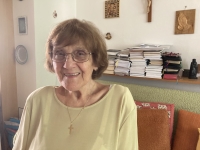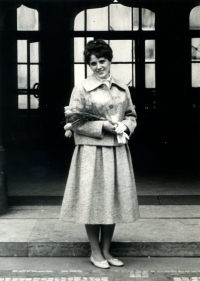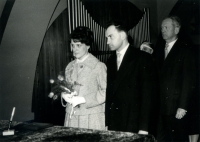We were proud to be believers, to whom nothing bad can happen

Download image
Marie Marešová, nee. Hulíková, was born on 18 January 1936 in Tábor. Her parents ran a laundry for the whole town. They raised their three children in the faith, and her father was a member of the Czechoslovak People’s Party. The street committee in the place of residence refused to give Maria and her older brother a recommendation to study at secondary school. The witness eventually graduated from the School of Common Catering, majoring in nutrition. Afterwards she worked as a worker in Prague. Stanislav Mareš became her boyfriend. Together they participated in the life of a Christian community - the Vyšehrad congregation, whose members gradually began to receive religious education in small groups. In the autumn of 1960, investigations and arrests began within the congregation’s circle. Seven persons, including Stanislav Mareš, were sentenced to sentences of one and a half to three years for so-called obstruction of church supervision. Stanislav Mareš was given two and a half years. Since both young people had applied for a cooperative apartment and had been selected, they decided to marry remotely while Stanislav was imprisoned. His twin brother Francis, who had power of attorney, represented him at the ceremony. Stanislav was released after an amnesty in May 1962. After that, the witness and her husband lived together until his death in 2016 and raised four children.


